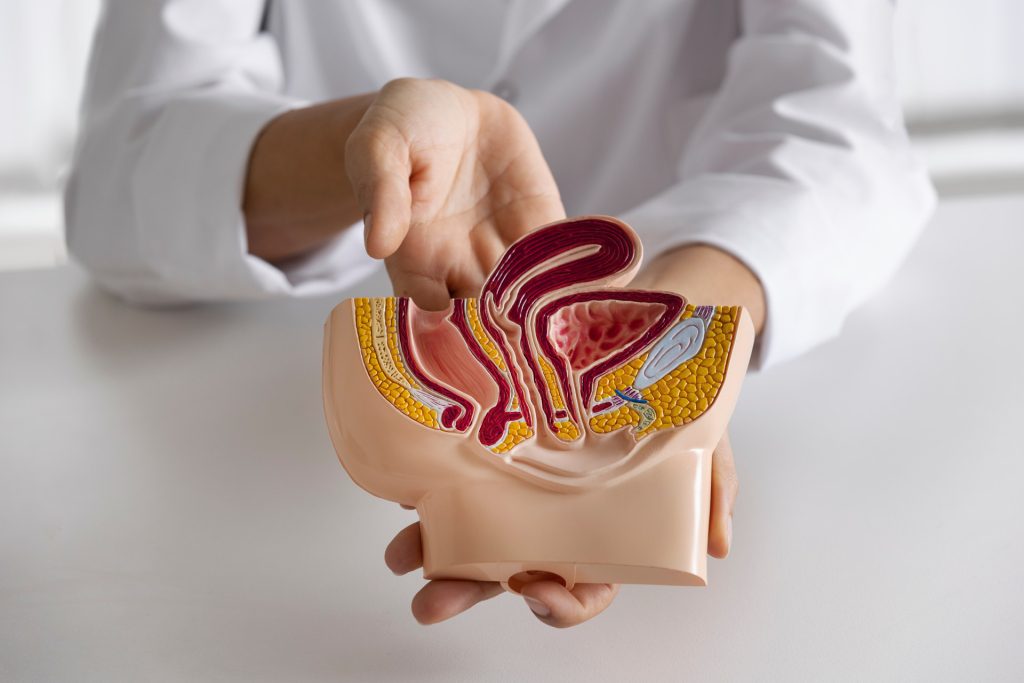What Is Rectal Cancer?
Rectal cancer develops in the rectum, a chamber between the end of the large intestine and the anus. It usually starts as a growth on the inner lining of the rectum and can spread to other body parts if left untreated. Symptoms of rectal cancer may include changes in bowel habits, rectal bleeding or blood in the stool, abdominal discomfort, and unexplained weight loss.
Diagnosis and Staging of Rectal Cancer
Diagnosing rectal cancer involves a combination of tests and procedures that help identify cancer cells in the rectum. Standard diagnostic tests include a digital rectal exam, colonoscopy, CT scan, MRI, and biopsy. These tests help determine the location and size of cancer and whether it has spread to nearby tissues or organs. In addition, the staging of rectal cancer is crucial in determining the most appropriate treatment options. The TNM staging system is used to stage rectal cancer based on tumour size, lymph node involvement, and distant metastases.
Treatment Modalities for Rectal Cancer in India
The treatment of rectal cancer typically involves a combination of surgery, radiation therapy, and chemotherapy. The choice of treatment modality depends on the cancer stage, the tumour’s location, and the patient’s overall health. The treatment modality includes-
- Surgery: Surgery is the most common treatment modality for rectal cancer. It is a highly effective treatment, mainly when the cancer is detected early. The benefits of surgery include the removal of cancerous tissue and the prevention of cancer recurrence. It involves the removal of the cancerous tumour along with surrounding tissues and lymph nodes. The type of surgical procedure used depends on the stage and location of cancer.
- Radiation Therapy: Radiation therapy is a treatment modality that uses high-energy radiation to kill cancer cells. It is usually applied with surgery to kill any remaining cancer cells that may not have been removed during surgery. The benefits of radiation therapy include the destruction of cancer cells and the prevention of cancer recurrence.
- Chemotherapy: As a treatment modality, chemotherapy uses drugs to kill cancer cells. It is typically used with surgery and radiation therapy for advanced-stage rectal cancer or when cancer has spread to other body parts. Chemotherapy drugs can be administered orally or intravenously. It can help shrink tumours, prevent cancer recurrence, and slow the progression of advanced-stage cancer. Chemotherapy can also improve the patient’s quality of life by relieving symptoms and reducing pain.
Choosing the Right Treatment Modality for Rectal Cancer
Choosing the suitable treatment modality for rectal cancer depends on several factors, including the cancer stage, the tumour’s location, the patient’s overall health, and preferences.
Conclusion
Rectal cancer is a significant health concern in India, and early detection and treatment are crucial for successful outcomes. With early detection and proper treatment, rectal cancer can be successfully treated, and patients can go on to live healthy and fulfilling lives.
FAQs
Q: What is the most common treatment modality for rectal cancer?
A: Surgery is the most common treatment modality for rectal cancer. Different surgical procedures may be used depending on the stage and location of the tumour.
Q: Can chemotherapy be a standalone treatment modality for rectal cancer?
A: Chemotherapy is rarely used as a standalone treatment modality for rectal cancer. It is usually used with other treatments, such as surgery and radiation therapy, to improve outcomes.
Q: Which factors should be considered when selecting a treatment modality for rectal cancer?
A: Several factors should be considered when selecting a treatment modality for rectal cancer, including the stage of cancer, the location of the tumour, the patient’s overall health, and the patient’s preferences and values.





Comments are closed.